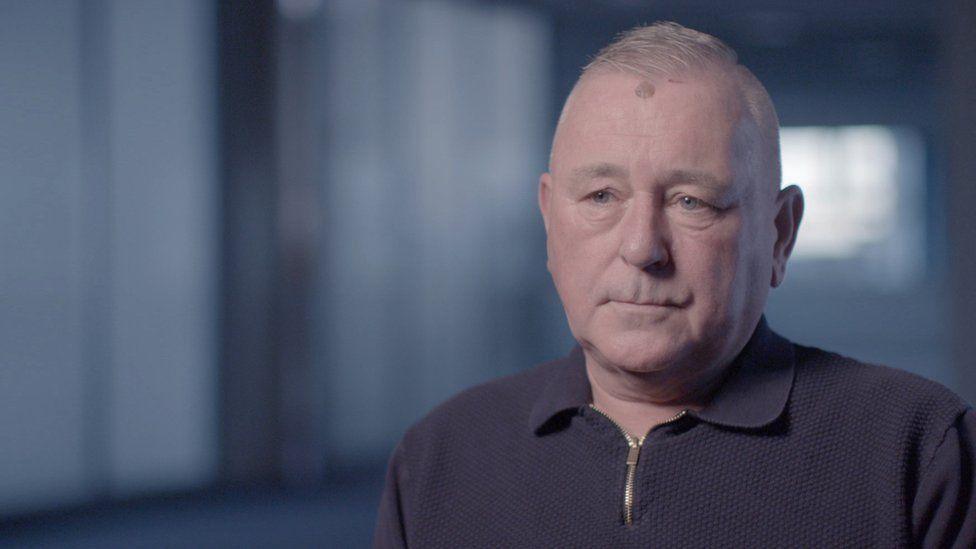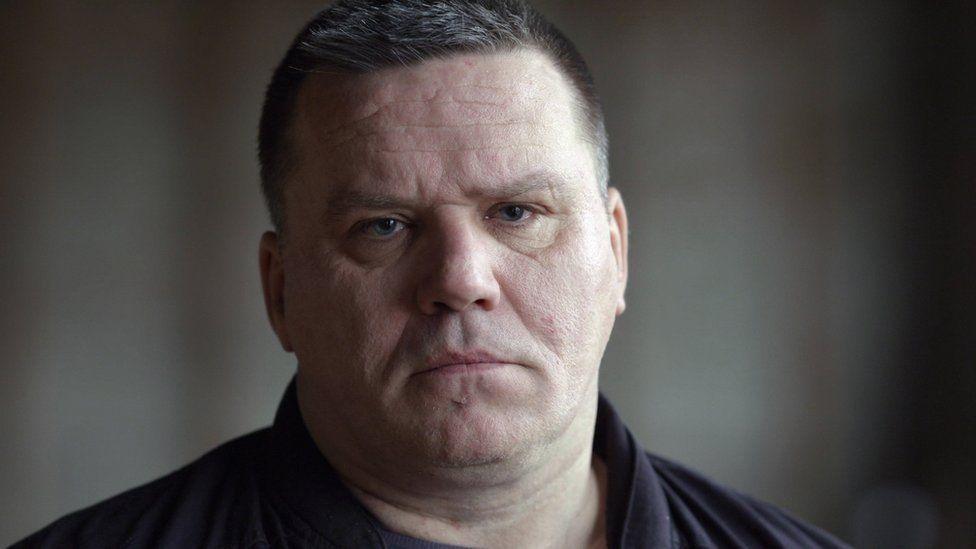Hundreds of sex attack reports 'dismissed' during Caldwell inquiry

Emma Caldwell's body was discovered in remote woods in Lanarkshire in May 2005, five weeks after she was last seen in Glasgow city centre
- Published
Nearly 300 rapes and sexual assaults reported by sex workers during the Emma Caldwell murder investigation were not dealt with by police at the time, a senior officer has confirmed.
Police Scotland’s deputy chief constable said an operation had been launched to examine sex offences which were reported around 2005.
She said a number of the offences were now being dealt with by the courts.
A former detective told the BBC he had received multiple reports of rape when he worked on the murder inquiry.
But he said they were “boxed” – marked as irrelevant and not followed up.
Willie Johnston, who was in charge of the murder inquiry at the time, declined to answer questions from the BBC about these allegations.
He told the BBC he’d be “more than content” to tell his story at the public inquiry.
The then Strathclyde Police launched one of its most expensive murder investigations after Emma Caldwell’s body was found in remote woodland in South Lanarkshire in 2005.
The 27-year-old had been working as a sex worker in Glasgow, to fund her heroin addiction.
About 800 women were working in the city’s red light district at the time and many were interviewed by detectives on the inquiry.
A BBC Scotland podcast, Who Killed Emma?, revealed a total of 276 rapes and sexual assaults reported by sex workers during the investigation were not followed up by police.

Former Detective Sergeant Willie Mason said many reports were "boxed" instead of being followed up
Former Det Sgt Willie Mason worked on the inquiry in 2005.
Mr Mason was based on a bus run by a church group which parked each week in the red light district.
He was tasked with gaining the trust of the women who were working on the streets.
Mr Mason said the women began reporting attacks to him – sometimes up to five reports on one night.
He said: "I would take what was classed as a message from them, and then I would write it up the following day, and put it into the inquiries, saying their name, their age, date of birth, address, where they could be contacted, and saying that a man in a blue car, you know, had attacked her.
"Just the basic details that they were telling me. Sometimes they were able to name them, sometimes they weren’t.
"It could be anything from a slap in the face to, you know, a rape.
"It wasn’t just me that was collecting them. The guys out doing the general leg work, they were putting these reports in as well."
How police missed the chance to catch Emma's killer
- Published28 February 2024
Public inquiry into Emma Caldwell police failings
- Published7 March 2024
The former detective said questions were raised at briefings with those leading the Emma Caldwell murder inquiry about what was happening with the reports.
He said: "But we were told at one point in a daily briefing, a number of daily briefings, when these questions were raised, that this wasn’t a matter for this inquiry team. These would be followed up at a later date, by another team."
But Mr Mason said instead of being followed up they were “boxed”.
"That’s a police term," he said. "During an inquiry there’ll be filing cabinets, and there’ll be big cardboard boxes which are filing boxes.
"And if something’s marked up as irrelevant or not to be followed-up, they’re boxed.
"And it’s basically a term that we used in the police for knowing full well nothing else was going to get done about that particular inquiry."
How I confronted Emma Caldwell’s killer
In February, Iain Packer was convicted of Emma Caldwell’s murder and of multiple rapes and sex assaults.
The BBC has seen police statements taken during the murder investigation where multiple women made rape and assault allegations against Packer.
They were not acted on at the time and it took nearly 20 years for Packer to be put on trial for his crimes.
Allegations were also made against other individuals during the inquiry and not acted on.
Nicky, not her real name, worked alongside Emma Caldwell in Glasgow in 2005.
She said she tried to report attacks by Iain Packer but was instead held for soliciting.
Nicky recalled: "There was twice that I went to Stewart Street to report things, and taken up there by uniformed officers in a car and I’d end up in a cell for a section 46 (for prostitution).
"Because I was on the streets working and they’d do nothing else with the rest of the information."

Iain Packer was jailed for life in February and told he must serve at least 36 years in prison after being found guilty of 33 charges of physical and sexual violence against 22 women
In February, as well as being convicted of murder, Iain Packer was also found guilty of abducting and attempting to rape Nicky.
She said of the police: "They didn't believe us. There's times where I was told it’s your own fault, you’re putting yourself out there - what you’re doing, you know what to expect."
After Packer was convicted, Police Scotland Deputy Chief Constable Bex Smith apologised and said Emma Caldwell, her family and many other victims had been "let down by policing in 2005".
In an interview with BBC Scotland News, she said: "We did a huge amount of work around understanding the offences that were reported around 2005, and there were many.
"We launched a separate operation so that we could understand the offending at that time, and we submitted several reports to the Crown Office in terms of that offending.
"Time is no barrier to justice .. and if women feel like they want to come forward and report now, then absolutely it's the time to do that."
Who Killed Emma? is available now on BBC Sounds and other podcast platforms
This article has been amended to make clear the details of Willie Johnston’s response to the BBC’s questions.